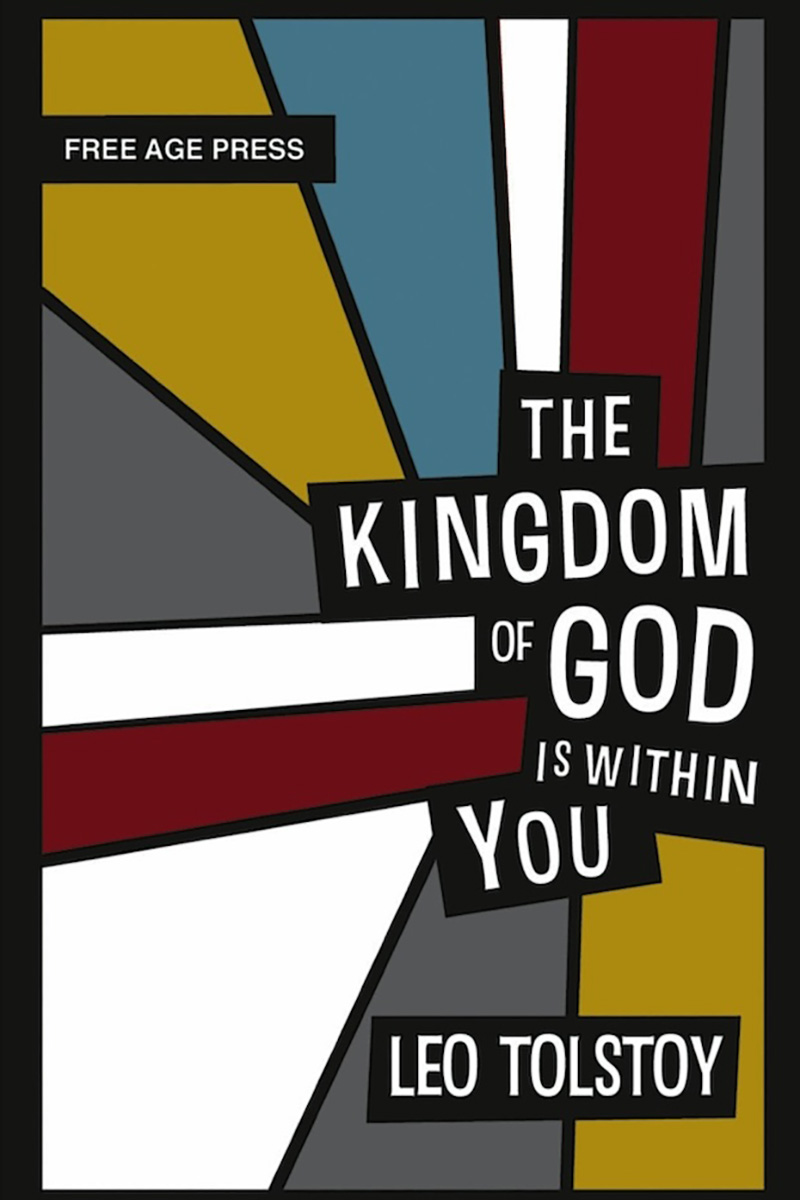Summary
Published in 1884, The Kingdom of God is Within You is perhaps Tolstoy’s most significant work of non-fiction. Due to the Russian censors, it was first published in Germany, but its dominant idea of non-violence echoed across the international stage throughout the 20th century.
In essence, the book is a defence by Tolstoy of the position on non-violence he adopted in My Religion, and it is therefore also an assault on the Orthodox Church. ‘Nowhere,’ says Tolstoy, ‘is there evidence that God or Christ founded anything like what churchmen understand by the Church.’ And in what it now proclaimed, Tolstoy believed the church was wasting its time: ‘The activity of the church consists in forcing, by every means in its power, upon millions Russian people, those antiquated, time-worn beliefs which have lost all significance.’
Freshly informed by Quaker ideals of non-violence; and full of both storytelling and rhetoric, here is Tolstoy calling for a change in consciousness in society. He does not accept that ‘this social order, with its pauperism, famines, prisons, gallows, armies and wars, is necessary to society.’ That which is, is not that which must be.
Rooted in the Sermon on the Mount, the teaching given by Jesus, Tolstoy’s Christianity is not primarily concerned with worship or salvation, but with a new way of behaving in society – behaviour informed by the pointlessness and sin of violence. Tolstoy tellingly reflects on the army at work, whether in internal repression or in national wars, and asks: ‘How can you kill people when it is written in God’s commandment ‘Thou shall not murder?’
Gandhi, who was overwhelmed by the book, said ‘it left an abiding impression’, and in time, a correspondence started between the two men. The book convinced Gandhi that Hinduism and Christianity were one and the same at their core, and informed his passive resistance first in South Africa and then India. Later, of course, it influenced the life and work of Martin Luther King in the United States.

